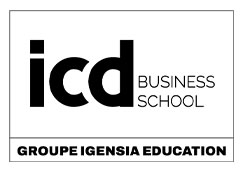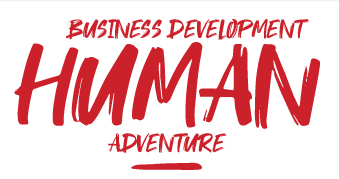The Institut Prospectif : The prospective approach to commerce professions
On 31 March 2022, the first conference will be held and the official creation of the Institut Prospectif des Métiers du commerce of the ICD Business School will be launched. This project is the culmination of the process undertaken since June 2021 in terms of the prospective approach to business professions. This event is not only the official creation of the Institut Prospectif des Métiers du Commerce, but also the opportunity to summarize and explain the entire process undertaken within the Institut Prospectif.

Michel Dalmas: Associate Professor and Director of the Institut Prospectif des Métiers du Commerce at the ICD Business School.
On this occasion and through a tailor-made interview, Michel Dalmas explains this project in detail.
Introduce yourself.
My name is Michel DALMAS and I have been an Associate Professor at the ICD Business School since 2021. I am also Director of the Institut Prospectif des Métiers du Commerce at the ICD Business School. In addition, I am an Associate Researcher at the CNAM-DICEN, Ile de France and hold an Habilitation to Supervise Research in Management Sciences from the CNAM, Ile de France.
What is the Institut Prospectif Métiers du Commerce? Why this subject? What triggered it?
The ICD Business School created the Institut Prospectif des Métiers du Commerce to follow the evolution of the business/trade and distribution professions. Indeed, our society is undergoing a major paradigm shift. Like all other sectors, the retail sector is also facing these upheavals due to four dimensions:
- The ecological transition and a citizen's affirmation : the economic context is encouraging people to consume differently. The circular economy constitutes an alternative, a central element of which is to favor proximity and locality. Organic products, collaborative shopping, depot-sale, etc... Ethical issues are an essential framework to take into account.
- The digital transition : the e-business of sales outlets generates new tasks, but also new jobs, and therefore new skills. Beyond the tools, how do you adapt to this new competitive context? The rise of digital technology and the development of multi-channel sales are disrupting the traditional players.
- The service model : the new behaviors of customers/citizens require new services, with ultra-fast deliveries, personalized offers, on-site repairs, recycled products, adapted coaching for outfits or decoration, creation or repair workshops, etc. The question of "making connections" is becoming a central element of the service.
- New ways of organizing work : the new organizations (governance, autonomy, professions, skills) are based on a transformation of social relations that are less and less based on the practice of command, control and obedience. All other relationships today must be between adults; relationships that require new forms of organization of the work of managers based on autonomy and trust. New forms of regulation are thus emerging and constitute as many initiatives to be taken into account.
What is the Institut Prospectif's approach?
The Institute's approach is resolutely collegial with the following 4 stakeholders:
- Business professionals (often former students),
- Experts (researchers involved in applied research),
- Students,
- DCI professors.
The approach followed is collegial. This implies (a) an operating framework, (b) a progressive improvement of one's relationship with others, and (c) an ethical approach to relationships with others. These three aspects are essential and constitute the foundations of the collegiality implemented.
(a) The objective of the operating framework is to seek the involvement and commitment of all members. It is a matter of practicing an equitable exchange between people, but the production remains that of the group that has been brought together for this purpose. It can therefore be workshops or sharing groups.
(b) Relationships with others require learning, by decentering the ego towards the situation of others. Synonymous with empathy, this approach requires going beyond simple rationality to integrate all aspects of the relationship, i.e. the emotional, intuitive and symbolic dimensions. Moreover, this approach is demanding because it implies a strong coherence between actions and words.
(c) Ethics are not absent from this approach because the authenticity necessary for its implementation requires a basis of trust, respect for the word of others and constant benevolence. For this reason, it is preferable to speak of regulation to evoke the necessary assumption of responsibility for the animation of the group by a person who will be the guardian of the principles mentioned above.
What is at stake?
The stakes of this approach are threefold:
- It allows the DCI to find the best training programs that are most adapted to enable its students and apprentices to succeed by 2030 / 2040.
- It is to gather around the Institute a pool of experts and referenced organizations to give the legitimacy and visibility necessary to this type of approach.
- It is ultimately strategic because it will allow the ICD to become the School of Business and e-Business of reference in France and internationally.
In your opinion, what are the avenues for improvement? Where do you see the future going?
There are many avenues for improvement and they will not only lead to rethinking the training program models, but will also lead to the search for new training certification methods, new business expertise, and allow the emergence of a new pedagogical signature.
We are moving towards the recognition of the ICD Business School as the reference school for business and e-business in France, with international visibility.



